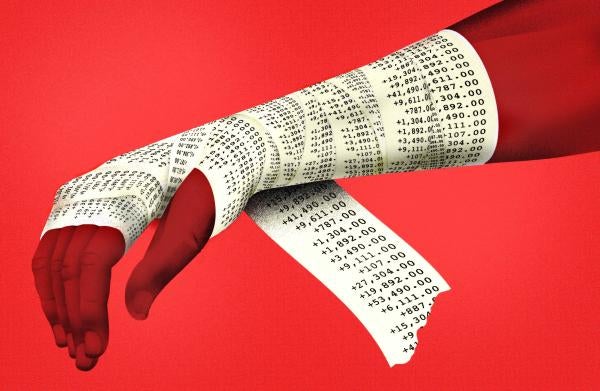Lire la version en français
I’ll start with a confession: I occasionally spend an evening watching TV hospital dramas from the US.
What keeps viewers’ attention in these shows is not just the heart-rending patient stories and family crises surrounding them, but also the weaknesses they reveal in the US health care system.
A story line inevitably builds up around a poor patient needing an essential-yet-pricey procedure they can’t afford, or their insurance won’t pay for. Ultimately, there’s an argument between a brash-but-dedicated genius surgeon who only cares about saving lives, and a cold hospital administrator who only cares about saving money.
“Are you just going to let her die?”
“We have a limited budget! We can’t save everyone!”
It’s a cliché scene in a show that’s tightly scripted to get to a commercial break in the next 30 seconds, but still, sometimes art imitates life a little too closely.
The US relies heavily on what’s called “charity care” by nonprofit hospitals to provide treatment for people who cannot pay. Each year, these hospitals receive public subsidies collectively worth tens of billions of dollars, largely in the form of tax exemptions.
The deal is supposed to be this: the hospitals get the subsidies in exchange for providing “community benefits,” such as free or reduced-price health care for uninsured and underinsured patients.
But a large chunk of that money isn’t used as it should be. In 2020, for example, nonprofit hospitals collectively received about US$28 billion in tax benefits, but spent only about US$16 billion on free or reduced-price “charity care.”
How can that happen? How can they be receiving public subsidies and not be using them for their intended purpose?
The key reason, as a new HRW report highlights, is the system is just poorly regulated. The federal government fails to provide the necessary guidance and oversight.
It’s the same reason the hospitals also get away with exploitative medical billing and nasty debt collection practices.
This all clearly needs to change.
And maybe next time the hospital administrator in a TV drama complains about the lack of funds for a procedure a poor patient needs, our bold surgeon should ask:
“Where’s all the money this hospital is getting in subsidies from the government to look after poor people? What are we spending it on if not these patients?”






